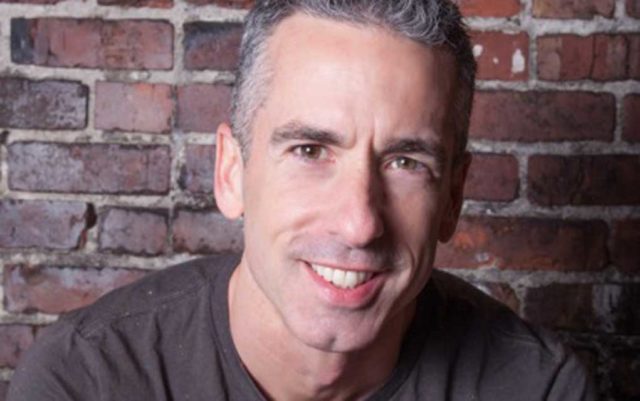
Dear Dan: Young, gay, gym member. A few years ago, I was alone in the sauna when this older guy asked if he could massage my feet. I’m pretty vanilla but he didn’t seem like a menacing pervert. So, I took your advice (been a reader forever) and used my words: I told him he could massage my feet on the condition that he didn’t do anything else. He respected my boundary, so I let him do it again and it turned into a regular thing. We would nod to each other in the weight room and follow me into the sauna when I was done working out. We started to make stupid small talk to relieve the tension (sexual for him, regular for me) and it turned out he worked in the field I wanted to go into. (I can’t be more specific than that, sorry.) He offered to look at my resume and then wrote me a letter of recommendation that led to a job offer. Here our story takes a sad turn: This old man died and I’m not sure of how to process what I’m feeling. We emailed a little, but we never met outside of the gym. Am I allowed to feel grief? And should I go to his funeral? It’s not a private ceremony but how would I explain my presence to his family? I didn’t know this man socially and I feel like saying, “I knew your husband and father from the gym,” might raise questions or suspicions. He was bisexual but not out and I don’t want to cause his family any additional pain.
— Getting Your Meaning
Dear GYM: I’m guessing you haven’t buried anyone — maybe a grandparent or two, but not a parent or a partner. So, here’s how condolences work at funerals: if someone wants to express their condolences to the immediate family of the deceased, that person approaches the family before or after the service. If that person is unknown to the family, that person can mention (but isn’t obligated to mention) how they knew the deceased before expressing their sympathy (“I’m so sorry for your loss”). It’s meant to be a brief interaction — you want to acknowledge their grief, not burden them with your own — and it’s an entirely optional one. If you don’t want to say something to the family, or don’t know what to say, you don’t have to approach the family.
There were a lot of people at my mother’s funeral that I didn’t know, GYM, and some of those strangers — strangers to me, not my mother — approached me and my siblings and stepfather and my mother’s siblings to express their condolences and some did not. But we were grateful to each and every person who came to my mom’s funeral, whether they approached us or not, and we didn’t run around asking strangers how they knew my mother. (For all I know, GYM, there were a dozen people at my mother’s funeral whose feet she rubbed in the sauna at the gym we didn’t know she belonged to.) So, go to the funeral, dress appropriately, sit at the back, don’t be surprised if you recognize a few other faces from the gym (I’m guessing the deceased didn’t have a monogamous relationship with your feet), and don’t feel obligated to approach the family. If someone sitting in your pew asks how you knew the deceased, feel free to tell (part of) the truth: “We went to the same gym, he gave me some professional advice, and I really appreciated his friendship.”
I’m sorry for your loss, GYM. Your share of the grief is tiny compared to that of this man’s wife and kids, but he touched your life — not just your feet — and your grief is real, meaningful and touching.














